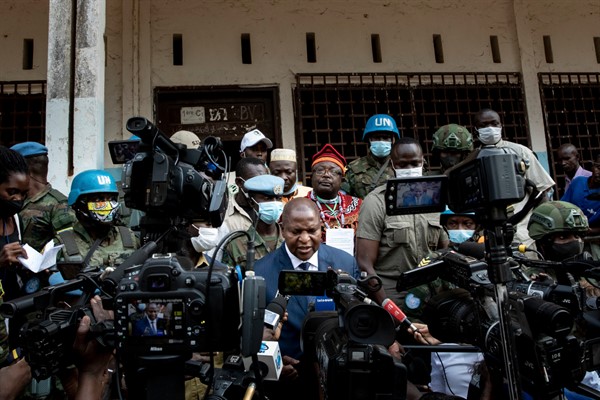BANGUI, Central African Republic—On the evening of Dec. 27, poll workers here in the capital of the Central African Republic were busy tabulating votes from presidential and legislative elections that were held that day. Many worked in dark classrooms without electricity, using their cellphone lights to check ballots.
Then, an explosion rang out, forcing them to briefly stop their work. Was it artillery fire? A grenade? In a city traumatized by seven years of violent conflict, and more recently by a surging rebel coalition threatening to advance on Bangui, many residents were not immediately sure what to expect.
The cause of the blast turned out to be fireworks set off by Russian personnel, stationed in CAR on a security assistance mission. For the roughly 600,000 registered voters here in the capital, it was one of relatively few disruptions in an otherwise smooth election process. But for the 1.2 million registered voters elsewhere in the country, the polls were more chaotic.

